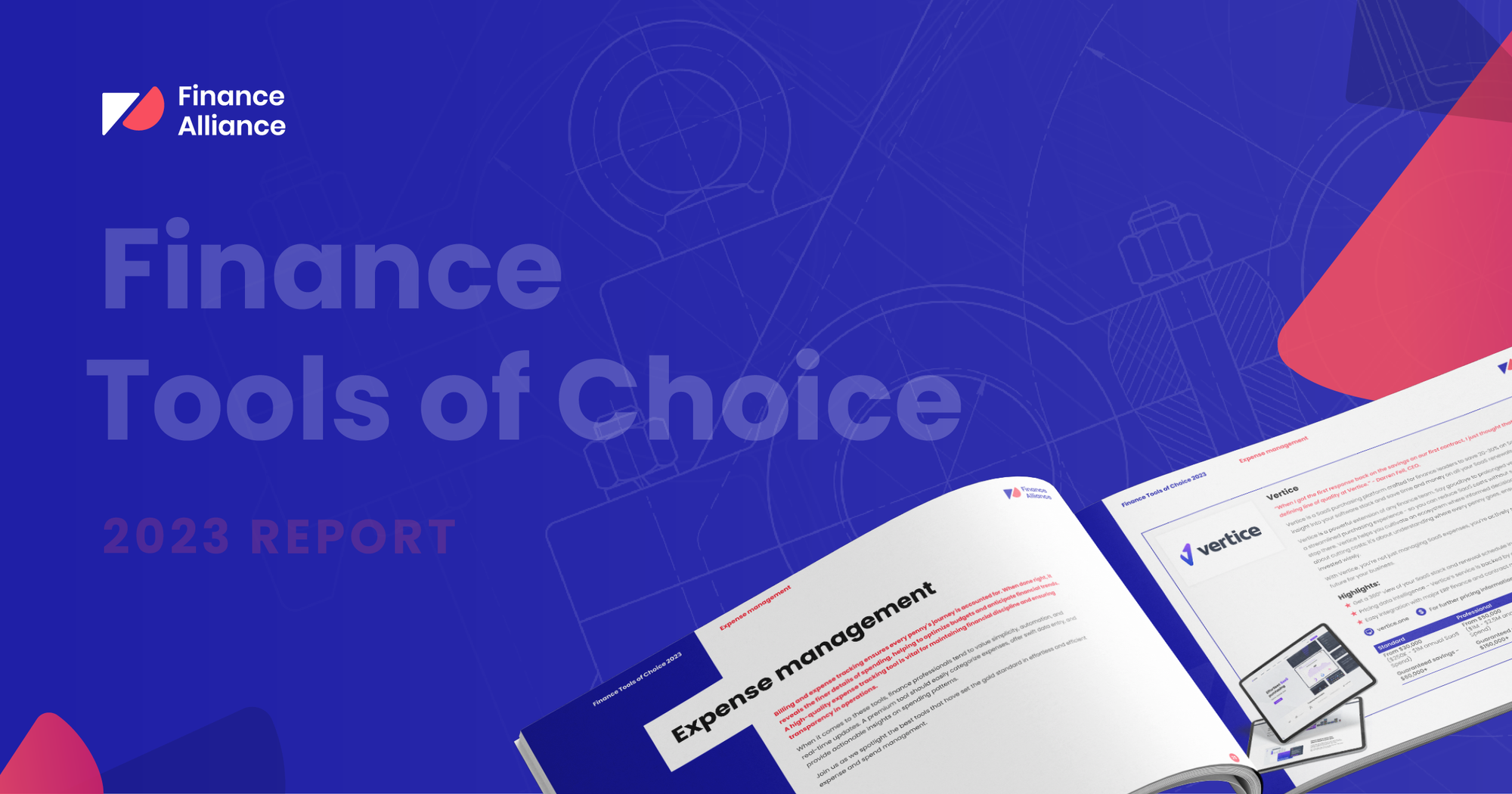This article is from a session by Emil Vasilev, VP of Finance at Cherry, who gave this presentation at the Finance Alliance FP&A Summit.
The most important part of everything that we do is our body, our mind, how we feel, how we do things, and what energy levels we experience. And we experience a lot at work in our day-to-day. So how can we manage ourselves effectively?
I’m Emil Vasilev, the VP of Finance at Cherry. My background is in private equity and investment banking. I’m originally from Bulgaria, and I live in Los Angeles now. About six months into my first job, which was at Barclays on Wall Street, I experienced serious burnout. I was done.
I think all of us have had our ups and downs in the working world. What I tried to do in the following year was many things. Most of them didn't work. I found a new job which didn't work because it was even more stressful. I found a new girlfriend - that didn't work either. It didn’t fill the void I’d felt at the time.
I tried various healthy and unhealthy ways of dealing with stress and living in New York City in my early 20s. But it wasn't until I learned a set of tools that are normally taught to high-performance athletes, military personnel, and C-level execs that I noticed an actual difference in my life.
This is more about the personal and professional merging, and I'd like to share some of these learnings with you all. I've been doing this for about 10 years, and I'll do my best to bring you in on my experience.
- Managing your energy: The key to tackling stress and burnout
- Getting enough quality sleep
- Getting enough nutrition
- Getting enough calmness
- Getting enough ‘you’ time
- Getting enough… breathing!
- Practicing an effective breathing technique
- Shifting your mindset through guided relaxation
- Mindful practices transform company culture
Managing your energy: The key to tackling stress and burnout
The first thing these frameworks start with is energy management. Just think about a time when you've been really low energy. How do you feel? What kind of emotions come up? You're down, you're sad, you’re depressed. Life is horrible.
Then think of a time when your energy was very high. How do you feel when emotions come up then? You're feeling great, there’s enthusiasm, there’s zeal.
So, when we get asked to do something after a long day and our energy is very low, and we’re feeling low, what’s our natural response?
You get back from a conference and your boss emails you at 9 PM asking you for something urgent the same day. What's your mental attitude? Are you kidding me? Right now?
And on the flip side, what’s the mental attitude when we're high energy and something comes up? It's a non-issue. We just take care of it, even if it's something big. I have no idea how I'm going to do this, but I'll get through it. I'll get it done.
The enthusiasm, the valor, and the zeal are there.
The only difference between those two things is the amount of energy that we have. So, how do we typically get our energy? What are the main sources of energy that we use in our day-to-day lives? Food and sleep, different kinds of nutrition, exercise, caffeine, sunlight.
I'll group them into four main buckets. When I think to myself, Okay, how am I feeling? Or something isn’t right, I think, Which one of these four things is off? And we know these, by the way. This isn’t AI. This is stuff that we know in our daily lives but forget about.
So the basics…

Getting enough quality sleep
We know this, and we don't do it oftentimes. How do we feel when we don't get enough sleep? Grumpy. How do we feel when we get too much sleep? Groggy. The right quantity of sleep is important, and for most people that’s six to eight hours. That's the basics.
If you want to optimize further, we can think about the timings of sleep. Modern neuroscience tells us that 10 PM to 2 AM is the most valuable window where we typically get the deepest sleep, and our body and brain get to revive themselves and rejuvenate. So, really optimize against that. Going to bed a little earlier and waking up earlier can make a huge difference.
Getting enough nutrition
Then, people mentioned food and drink. How do we feel after a heavy lunch versus something more life-supporting?
It’s also about where the food comes from. All these things that we, especially here in California, are super aware of. Nutritious food versus fast food, things like that can make a huge difference in our state of mind or mood, etc.
Getting enough calmness
Then we have a category that I’d call a calm, collected state of mind. So that's the third. And within that, we can place different things. We can place working out, where the body moves, but also the mind gets refreshed. We get purified.
I looked at some stats recently that showed most people work out for mental health. They're not working out for a specific, visual, outside result, they're working out to clear their mind and feel good.
Getting enough ‘you’ time
An easy way to think about it is just to remember a time that you spent with someone who was complaining to you for an hour. How do you feel after that? Drained? Tired? Your body hasn't moved physically, but you somehow feel tired.
The reverse of that is listening to an uplifting talk, spending time with family, or doing a hobby. These things can actually be a tangible source of energy for us.
Getting enough… breathing!
Then the last thing is the breath. The breath is usually overlooked. We breathe all the time, but we don't think about it.
How long can you last without food? Probably a couple of weeks. It depends on how kept up you are. How about without sleep? A couple of days, maybe longer. Without breath, most of us can only last a couple of minutes.
Breath can be this link between the tangible world outside and the less tangible world inside. The world of emotions, the world of state of mind, the world of thoughts. And it can be that bridge between them.
Why is it so important? Why is energy so important? We’ve talked about how we feel when we're low or high. And then if you think about it, that state of mind dictates the quality of our lives. Have you observed that?
Just imagine you have everything you want; an amazing job, a great family, properties everywhere, a lot of money, etc. But if your state of mind is irritated and impatient, and you're constantly thinking, Am I losing money in the market right now? Even if you have 600 million, how’s that going to feel? Is this going to be a pleasant life? A good life? Probably not.
This was a critical insight: if I can manage my energy levels, I can manage my state of mind, and my whole life.

Practicing an effective breathing technique
Would you like to know a secret about the breath?
With every emotion we experience, there’s a corresponding rhythm of breath associated with it. A very particular one. Just think about a situation where you've been angered or someone around you has been angry. What was their breath like? Most likely fast, quick, shallow, and choppy.
How about when you're on a beach somewhere relaxing, just on vacation? Slow, steady, barely noticeable, very subtle. When you come home from a long day and you sit on the couch, what's the breath like? It's like a long exhale of relief.
So, we can use this relationship to our advantage, and we can inverse this relationship. By changing the way we breathe, we can actually change our state of mind. We can actually manage how we feel and manage our emotions. Isn't that cool? So let's experience it, shall we?
This is a fun breathing technique. Let's do it together and not worry about feeling silly.
Sit with your spine straight. You can sit at the edge of a chair. People call this different names. Bellows Breath is one. A bellows is the thing that you use to make a fire bigger. People call it Yogic Coffee as well. But we can do it together and do a quick 5-10 minute guided relaxation.
- Breathe in and out through the nose.
- Lift your hands up above your head, and then let go and collapse them back into loose fists.
Do three rounds of 15 to 20 reps each. You can close your eyes. Just be with the experience and see how you feel after.
Sit with your spine straight. Close your eyes, transition breath in through both nostrils… and then out.
Keep repeating it, and then relax.
Keeping the attention inward, just relax and observe what's happening on the inside.
Keeping the eyes closed, let’s do the second round. Loose fist by the shoulders, spine is straight, chin is untucked. Transition breath in… and out.
And then relax. Relax the hands. Slow down. Attention inward.
Right, final round. Hands in position and loose fists by the shoulders. Remember on the way up, open your palms, and on the way down, collapse them into loose fists. Transition breath in… and out.
And relax. Let's sit easily and comfortably. Attention inward. Eyes closed. Just observe your energy level now. Observe your state of mind now, as compared to a couple of minutes ago.

Shifting your mindset through guided relaxation
We’ll do the guided relaxation now. Let's take a normal breath in… and out. Become aware of your environment, the room, any music, any background noise.
Don’t resist the noises, be in harmony with them. You're now in harmony with the environment.
Take a deep breath in, and out. Become aware of your physical body, your legs and feet, thighs, abdomen, stomach, chest, shoulders, neck, throat, head, and face. Become aware of your whole body.
Let's take a deep breath in, and out. Become aware of your thoughts. Good thoughts or bad thoughts. Just let them come. Don’t resist your thoughts, be in harmony with them.
Become aware of your feelings, pleasant feelings or unpleasant feelings. Don’t resist your feelings.
You are peace. You are joy. Become aware of your feelings, become aware of your thoughts. Become aware of your body. Become aware of your surroundings.
Let's take a deep breath in… and out. Then another deep breath in… and out. And then whenever you feel ready, you can open your eyes.
So, how was that? Good? Only a couple of minutes of breathing and a few minutes of relaxation meditation can really shift things.
Mindful practices transform company culture
How is your state of mind now? Probably more collected and calm. Imagine living life in this space. Imagine making decisions, working, and getting things done from this space.
And then think about, what if all the people around you were living their lives from this space? It’d be different. It wouldn't be a small step. It’d be a giant leap.
In my former company, two-thirds of the people learned these kinds of practices in a longer seminar that we did over a couple of days, a couple of hours each day, and it was transformative. It stuck with people.
It was taught by an organization called the TLEX Institute. They don't pay me to do any of this. I'm just sharing it. I hope you enjoyed the session, and I hope you have a wonderful day.




 Follow us on LinkedIn
Follow us on LinkedIn




